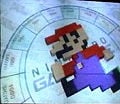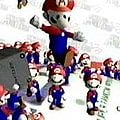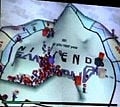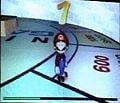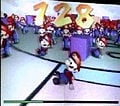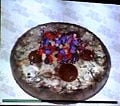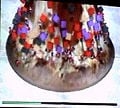Super Mario 128: Difference between revisions
No edit summary Tag: Mobile edit |
Weegie baby (talk | contribs) Tag: Mobile edit |
||
| (3 intermediate revisions by 2 users not shown) | |||
| Line 1: | Line 1: | ||
{{italic title}} | {{italic title}} | ||
{{about|the [[tech demo]]|the event match from Super Smash Bros. Melee|[[Super Smash Bros. Melee#Event match|Super Smash Bros. Melee § Event match]]}} | {{about|the [[tech demo]]|the event match from Super Smash Bros. Melee|[[Super Smash Bros. Melee#Event match|Super Smash Bros. Melee § Event match]]}} | ||
{{distinguish|Super Mario 64 2}} | |||
{{game infobox | {{game infobox | ||
|image=[[File:Mario128titlescreen.jpg|250px]] | |image=[[File:Mario128titlescreen.jpg|250px]] | ||
| Line 56: | Line 57: | ||
==External links== | ==External links== | ||
*[https://www.youtube.com/watch?v=VBH50xxUKEk Space World footage] | *[https://www.youtube.com/watch?v=VBH50xxUKEk Space World footage] | ||
*[http://www.youtube.com/watch?v=IU1IML3xlp0 Super Mario 128 ft. Dunkey - DidYouKnowGaming] | *[http://www.youtube.com/watch?v=IU1IML3xlp0 Super Mario 128 ft. Dunkey - DidYouKnowGaming] | ||
==References== | ==References== | ||
{{NIWA|Pikipedia=Pikmin (game)#Development}} | |||
{{Wikipedia|Super Mario 128|''Super Mario 128''}} | |||
<references/> | <references/> | ||
{{unreleased media}} | {{unreleased media}} | ||
{{Super Mario games}} | {{Super Mario games}} | ||
Latest revision as of 12:25, November 7, 2024
- This article is about the tech demo. For the event match from Super Smash Bros. Melee, see Super Smash Bros. Melee § Event match.
- Not to be confused with Super Mario 64 2.
| Super Mario 128 | |
|---|---|
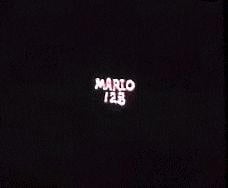
| |
| Developer | Nintendo EAD |
| Publisher | N/A |
| Platform(s) | Nintendo GameCube |
| Release date | Unreleased[?] |
| Genre | Platform |
| Mode(s) | Single player |
| Format | Nintendo GameCube:
|
| Input | Nintendo GameCube:
|
Super Mario 128, or Mario 128,[1] was the name of a series of projects by Nintendo to create a sequel to Super Mario 64, much like the canceled game Super Mario 64 2. While initially named in January 1997,[2] it was first shown as a tech demo at Space World 2000. The project experimented with new technology and ideas to incorporate into later games. A demo of the project was released by Nintendo. The demo featured 128 Marios onscreen at once. Other features of the demo included the use of "sphere-walking," later used in Super Mario Galaxy;[3] and "gravity-defying," later used for the Iron Boots in The Legend of Zelda: Twilight Princess. Super Mario 128 has been confirmed to be unrelated to Super Mario Sunshine.[4]
Super Mario 128 has been initially believed to have been the foundation for Pikmin, as stated by Shigeru Miyamoto during his keynote speech at the 2007 Game Developers Conference.[5] However, Pikmin programmer Yuji Kando would later state in 2023 that Super Mario 128 did not influence Pikmin in terms of planning and technology, as the team was not aware of its existence.[1]
Secretive true sequel to Super Mario 64[edit]
Aside from the tech demo shown off, another Super Mario 128 was secretly in development, with Shigeru Miyamoto being the director. This would have been the final game that he directed, had it been completed. He stated that the reason he wanted to make a sequel, which would have taken at least one and a half years according to an interview at E3 1996, was that Super Mario 64 used only 60% of the capacity of the Nintendo 64.
The game was originally planned to release on the Nintendo 64DD peripheral for the system, but it was shifted to the GameCube following the development being delayed after the release of The Legend of Zelda: Ocarina of Time, which had been delayed to a 1998 release, as well as the 64DD's discontinuation due to its commercial failure. The game would have featured a potential co-op single-player mode featuring Mario and Luigi, as well as four-player split-screen multiplayer akin to Mario Kart 64 with rumors stating that Peach and Toad were meant to be playable in multiplayer, something that would not happen until Super Mario 3D World in 2013, as well as rumors from the European magazine Nintendo Official Magazine (rebranded as Official Nintendo Magazine in later years) that stated that Yoshi would have been rideable.
In 1999, Miyamoto expressed his disapproval over the Super Mario franchise being increasingly marketed to young children, believing that players would grow out of those kinds of games when they reached middle school. He wanted to stop Mario from using his peace sign gesture and have him stop smiling and laughing for no good reason, due to those qualities factoring in what he felt was not right.[6] He also wanted the game to have more mature graphics and a more grown-up version of the title character, even going so far as having an interview in an issue of the Japanese magazine Playboy Weekly, promising that the game would have a fresh new experience.[7]
Fans expected the game to appear at E3's showings in 2003 and 2004, but the game was not shown at all due to Miyamoto's wanting to keep the new ideas for the game from being copied by other companies, even saying at E3 2005 that the game may not be released on GameCube after all. At the 2007 Game Developers Conference, where he revealed that the tech demo shown off at Space World 2000 became Pikmin in terms of gameplay, he said that it also became Super Mario Galaxy in terms of stage design. Reporters stopped asking him about the game.
This interpretation of Super Mario 128 seemed to influence other games such as Super Mario 64 DS (Luigi's playability), The Legend of Zelda: Majora's Mask, Pikmin 2 (single-player cooperative gameplay), Super Mario Sunshine (the ability to ride a Yoshi), Super Mario 3D World (four-player cooperative multiplayer), and both Super Mario Sunshine and Super Mario Galaxy (the removal of Mario's peace sign gesture prior to its return in Super Mario Odyssey).
References in other media[edit]
- Super Smash Bros. Melee: An Event Match in the game is titled "Super Mario 128," where the player must defeat 128 tiny Marios.
- Mario & Luigi: Dream Team: The idea to have 128 Marios at once in the demo may have inspired the idea of Luiginoids in the game, where the player uses clones of Luigi to navigate through various areas.
- The Super Mario Bros. Movie: Amongst the 20 questions in the Live Chat section of the Super Mario Bros. Plumbing website, the brothers state in a question regarding the busiest time of the year that they "wish there could somehow be 128 Marios to answer all those calls."[8]
Gallery[edit]
External links[edit]
References[edit]
- ^ a b July 18, 2023. Ask the Developer Vol. 10, Pikmin 4—Part 1. nintendo.com (American English). Retrieved July 18, 2023. (Archived July 18, 2023, 14:33:05 UTC via Wayback Machine.)
- ^ Miyamoto Interviews. Miyamoto Shrine (English). Archived September 27, 2011, 05:09:10 UTC from the original via Wayback Machine. Retrieved September 19, 2018.
- ^ Gantayat, Anoop (August 21, 2006). Miyamoto Opens the Vault. IGN (English). Retrieved July 6, 2024.
- ^ Davies, Paul (May 16, 2003). E3 2003: Miyamoto: the interview. Computer and Video Games (British English). Archived December 15, 2007, 11:42:43 UTC from the original via Wayback Machine. Retrieved July 6, 2024.
- ^ Martin, Matt (March 9, 2007). GDC: Shigeru Miyamoto's Keynote Speech. GamesIndustry.biz (English). Retrieved July 6, 2024.
- ^ Bivens, Danny (January 23, 2014). Shigeru Miyamoto Speaks: An Interview Between Itoi and Miyamoto from 1999 – Part 4: Shigeru Miyamoto speaks about his vision of the future five years from now. Nintendo World Report (English). Retrieved April 12, 2024 (Translated from this interview). (Archived February 28, 2014, 19:39:02 UTC via Wayback Machine.)
- ^ Gantayat, Anoop (December 10, 2002). Nintendo Talks Pikmin 2 and Mario 128. IGN (English). Retrieved April 12, 2024. (Archived October 12, 2014, 23:21:48 UTC via Wayback Machine.)
- ^ "Busiest time of year? Definitely the winter months! Wish there could somehow be 128 Marios to answer all those calls."; Live Chat section on SMBPlumbing.com website, 20 Questions option
| Nintendo GameCube games | |
|---|---|
| Super Mario franchise | Luigi's Mansion (2001) • Super Mario Sunshine (2002) • Mario Party 4 (2002) • Mario Golf: Toadstool Tour (2003) • Mario Kart: Double Dash!! (2003) • Mario Party 5 (2003) • Paper Mario: The Thousand-Year Door (2004) • Mario Power Tennis (2004) • Mario Party 6 (2004) • Dance Dance Revolution: Mario Mix (2005) • Mario Superstar Baseball (2005) • Mario Party 7 (2005) • Super Mario Strikers (2005) |
| Donkey Kong franchise | Donkey Konga (2003) • Donkey Konga 2 (2004) • Donkey Kong Jungle Beat (2004) • Donkey Konga 3 JP (2005) |
| Wario franchise | Wario World (2003) • WarioWare, Inc.: Mega Party Game$! (2003) |
| Other | Super Mario 128 (2000, demo) • Super Smash Bros. Melee (2001) • Nintendo Puzzle Collection (2003) • NBA Street V3 (2005) • SSX on Tour (Nintendo Village) (2005) • Donkey Kong Racing (cancelled) • Diddy Kong Racing Adventure (cancelled) |
